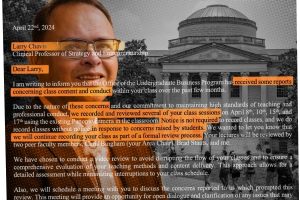In many English classes, faculty members grade students’ assignments in the order they are submitted. However, there are benefits to randomizing the grading order instead. By mixing up the order in which papers are graded, faculty can provide more objective and fair evaluations, reduce bias, and create a more equitable learning environment for all students.
One of the primary reasons why faculty should consider randomizing grading order in English classes is to ensure that all students receive a fair evaluation. When grading papers in the order they are submitted, it can be easy for faculty members to inadvertently assign higher grades to papers that are submitted earlier, simply because they are fresher in their minds. This can result in students who submit their papers later receiving lower grades, even if their work is just as deserving of a high mark. By randomizing the grading order, faculty can ensure that all students are evaluated on the same criteria and can avoid this potential bias.
Additionally, randomizing grading order can help reduce unconscious biases that may affect faculty members’ evaluations of students’ work. Research has shown that individuals are prone to biases based on factors such as gender, race, or even handwriting style when evaluating written work. By mixing up the order in which papers are graded, faculty members can mitigate these biases and focus on the content and quality of the work itself. This can lead to more objective and accurate evaluations of students’ performance.
Randomizing grading order can also create a more equitable learning environment for all students. When grades are assigned in a predetermined order, students may feel discouraged or disheartened if they see that their peers are consistently receiving higher grades. This can create a sense of competition or comparison among students, which can be detrimental to the overall learning experience. By randomizing the grading order, faculty can help foster a more supportive and collaborative classroom environment, where students are focused on their own growth and improvement rather than on how they compare to their peers.
In conclusion, faculty members should consider randomizing grading order in English classes to provide more fair and objective evaluations, reduce bias, and create a more equitable learning environment for all students. By mixing up the order in which papers are graded, faculty can ensure that all students are evaluated on the same criteria, mitigate unconscious biases, and foster a supportive and collaborative classroom environment. Ultimately, randomizing grading order can help create a more inclusive and positive learning experience for all students.



